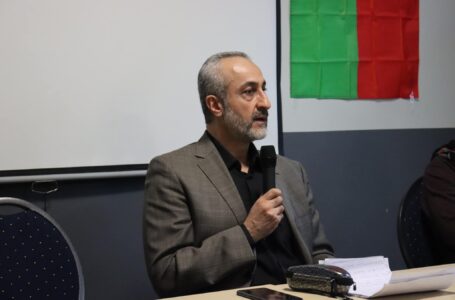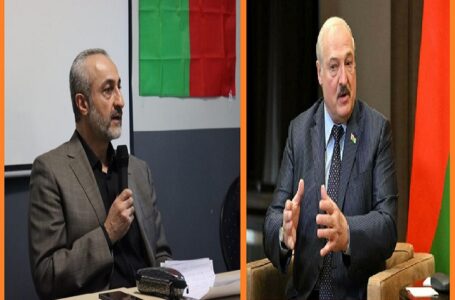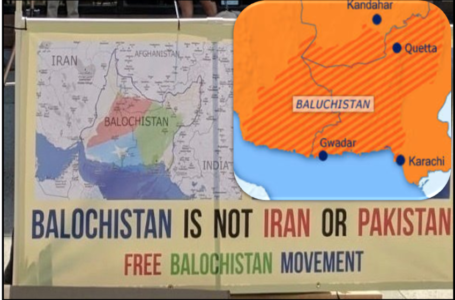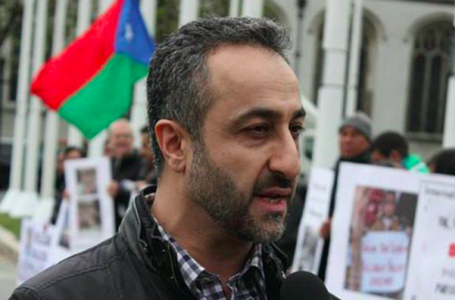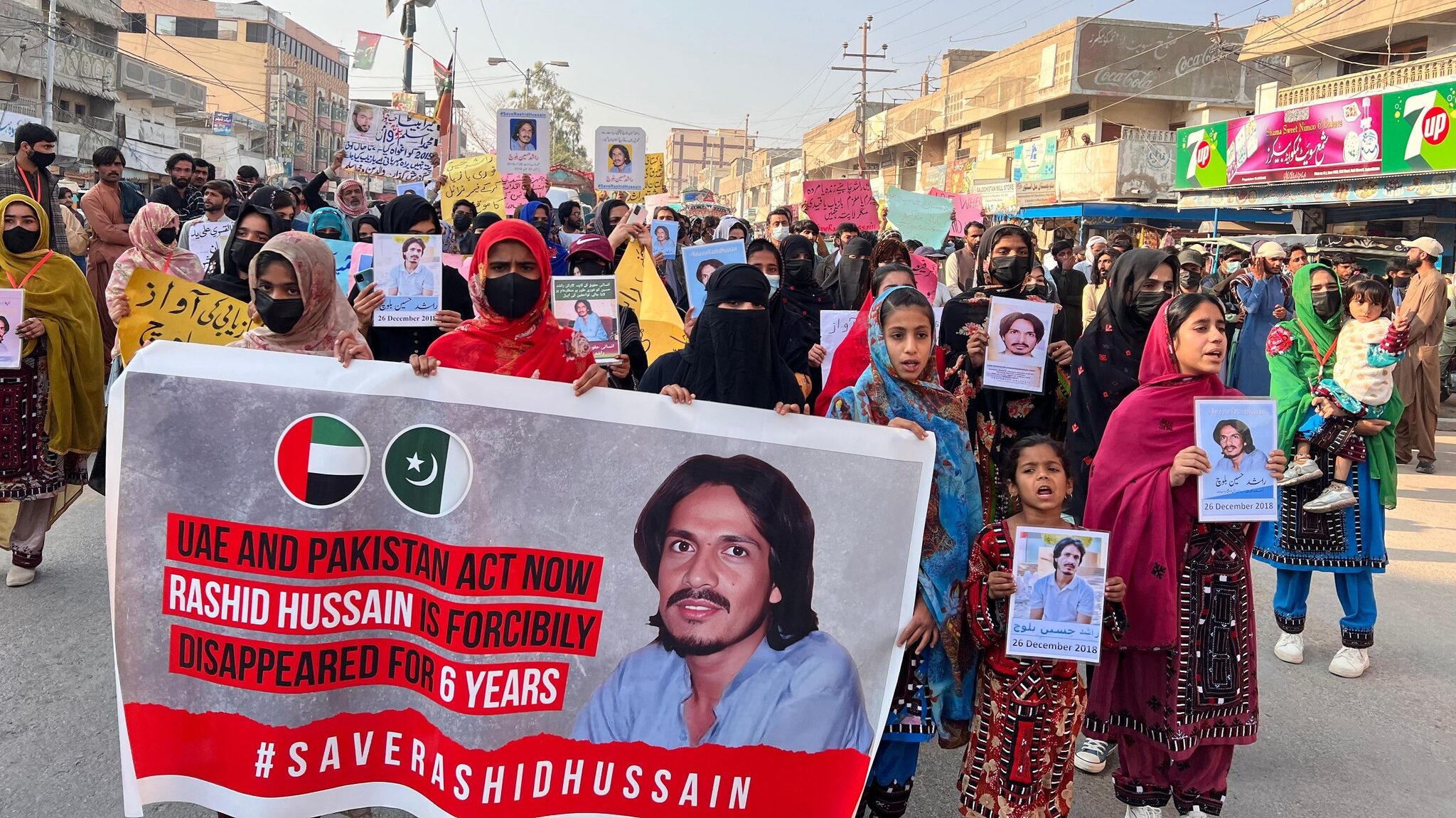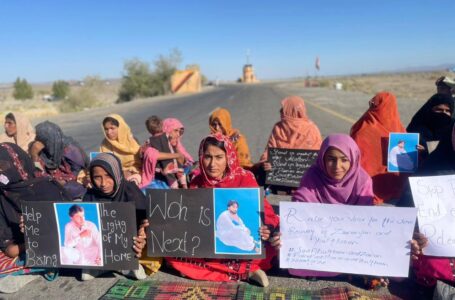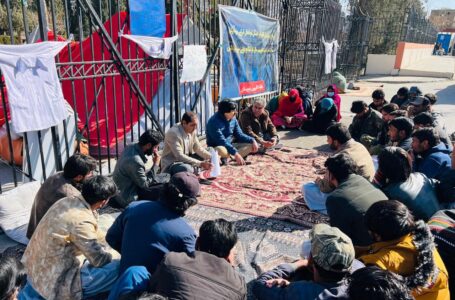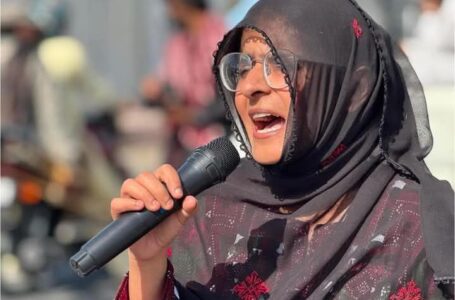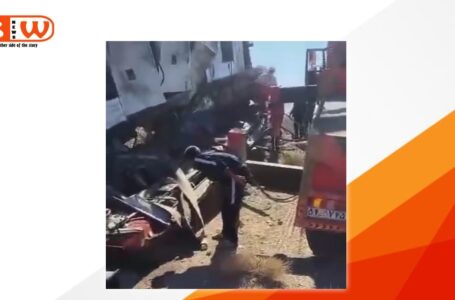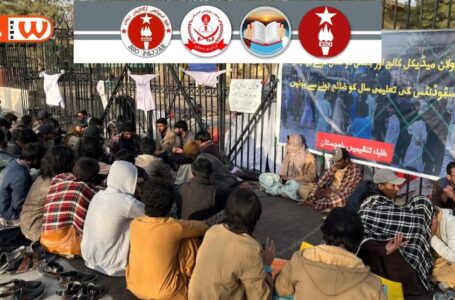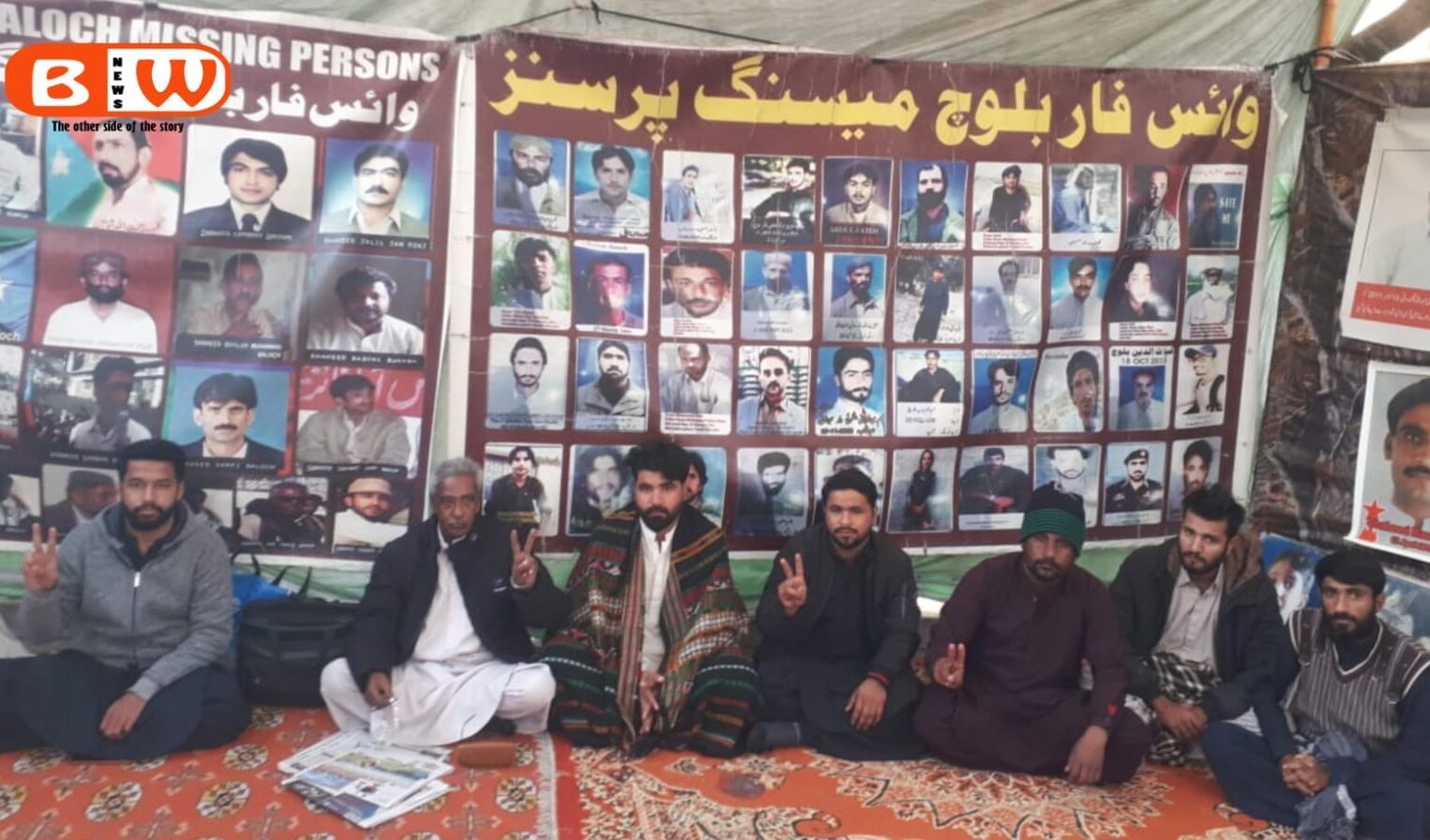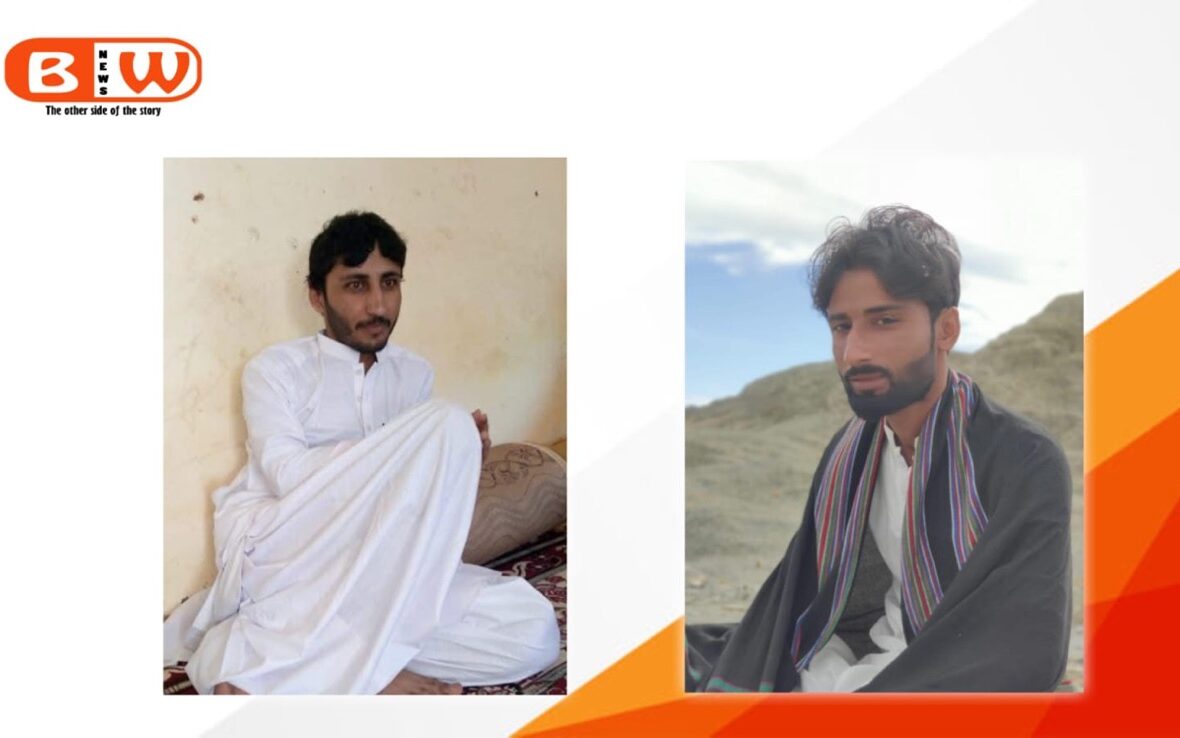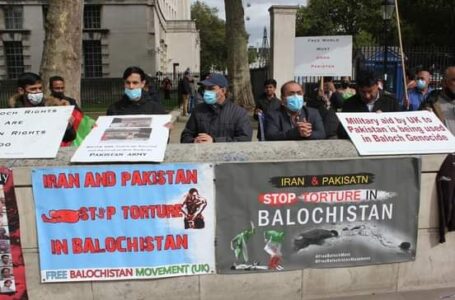Protest Marks Six Years of Baloch Activist’s Enforced Disappearance
Hyrbyair Marri’s interview with the Tilak Chronicle
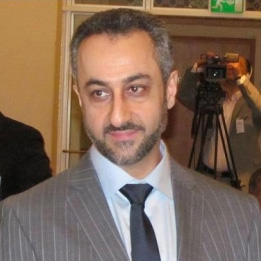
Interviwer Mark Kinra
Hyrbyair Marri is a Baloch nationalist activist and one of the most influential members of the Baloch community. He currently lives in London, UK. The fifth son of Nawab Khair Bakhsh Marri, Hyrbair Marri is the founder of Free Balochistan Movement (FBM), a political party working towards the goal of an independent Balochistan.
In an online interview, I spoke to him about Balochistan’s freedom struggle, the BLA, China’s presence, expectations from India, and sovereignty and nationhood in South Asia. Excerpts:
When and why did you leave Balochistan?
In December 1999, I was visiting London for some personal work, when [Gen. Pervez] Musharraf slapped charges of murder of Judge Nawaz Marri against me and my family. By murdering a member of our tribe and charging us with it, they tried to kill two birds with one stone.
The main reason, however, was that previously they had approached my father [the late Nawab Khair Bakhsh Marri] with a proposal to explore gas and petroleum reserves in the Marri tribal area of Balochistan, which we had rejected. The land and its wealth belong to the Balochs and these false murder charges were their reaction to our rejection.
They arrested over 500 people, mostly from the Marri tribe, and jailed my father for 18 months. It was a collective punishment, politically motivated for economic gains. The case is still going on; it’s been 21 years and the ‘speedy’ courts of Pakistan as they call them have still not passed judgement.
Meanwhile, they lodged and dropped about 2-3 dozen cases against me. This was blackmail – they would lodge a case, then I would get requests for reconciliation and return to Balochistan, offering me a [government] position and political standing. I would refuse.
They issued an Interpol red notice against me and in London, tried me in an anti-terrorism court. Pakistan has tried hard through blackmail and threats, but thankfully, I still stand for my cause, our freedom, our rights, and our community, and continue working for them.
So, in the last two decades, you have not returned to Pakistan?
I have nothing to do with Pakistan. I am native to Balochistan, and if I go, I will go to Balochistan. So, no, I haven’t been to Balochistan after 1999.
There are many militant organisations in Balochistan fighting for its independence. Why has the US proscribed only the BLA?
Around 1996-1997, when the call and efforts for independence picked steam, it was BLA who organised everyone and worked for Balochistan’s independence. Pakistanis fear BLA’s grassroots connect and local support. In the early 2000s, they got Britain to proscribe BLA.
During US-Taliban negotiations, one of the points on the agenda was to ban BLA.
Both Pakistanis and Americans acknowledged this. Pakistan pushed its agenda through Taliban; Taliban became Pakistan’s mouthpiece and pressurized the US. Also, Zalmay Khalilzad (US Special Envoy to Afghanistan) stated that the Balochs must not be supported. The truth is, Balochs are not being supported. If they were, by Americans or Afghans, things would move ahead.
At that time, I had tweeted to the Americans to not heed the Taliban. However, the US ignored us – a secular, tolerant organisation created for Balochistan’s defence and not against any language, community, or religion.
Instead, it chose to listen to the Taliban, the exact opposite, who is against different languages and communities, who kills a Tajik for being a Tajik, Shia for being a Shia, Hindus and Christians for their religions.
The US listened to Pakistani generals, who take their money and along with the Taliban, kill their soldiers, and ultimately proscribed the BLA. This is unfortunate and they will suffer in the long term.
One of the main reasons why Balochistan’s struggle lacks international coverage is because it is scattered and the Balochs don’t have a leader like Mahatma Gandhi who would unite all Balochs in one solid front. What do you think about this?
The enemy [Pakistani establishment] has created this disunity. In the process, they have spent billions of dollars and bribed people with land and powerful positions, just like British used India’s wealth and people to keep Indians as slaves for two centuries.
Mahatma Gandhi wasn’t the only leader in Indian history. He was one of the leaders; Bhagat Singh, Subhashchandra Bose and Jawaharlal Nehru were there too. The culmination of their efforts plus World War II, and not Gandhi alone, won India its independence.
Some cracks are created by the enemy, some, unfortunately, are our own. Some external actors see that Balochistan is big and strategic, and sow seeds of friction in Baloch minds. When Indian politicians and journalists start using divisive terms such as “common Baloch” and “elite Baloch”, they are indirectly and unwittingly helping the Punjabis [read: Pakistani establishment] create more cracks within the Baloch community.
I would ask my Indian friends to not export the concept of ‘common’ and ‘elite’ to our community. Baloch society has a different social fabric and lifestyle – please understand it first. We are occupied by Iran and Pakistan and common or elite, we are all slaves of Iranians and Punjabis. Why would you bring out such differences if both are slaves and both are struggling?
Also, this is a freedom struggle; we are not bringing about a social revolution – Russian or Chinese Communist – here.
Would a non-violent struggle for an independent Balochistan have been more effective?
Was our independence snatched away peacefully? Or was it done using tanks, jets, and bullets, causing heavy destruction? If the takeover had been peaceful, we would have thought of peaceful solutions.
We are not using violence – we don’t want it, and we have never used it against anyone. But there is a clause in international law which gives one the right to defend oneself. The US resorted to pre-emptive strikes in Iraq when they didn’t even know if Iraq possessed WMDs or not.
They also took action in Afghanistan. With big countries, it’s self-defence and acceptable, but with smaller, weaker communities like the Balochs, its violence and crime. Balochs are against violence, but we reserve our right to self-defence to save our lives and livelihoods.
There are quite a few reports on China building a naval base at Jiwani in Balochistan. Is Pakistan, who always has an emotional take on Kashmir’s sovereignty, selling Balochistan’s sovereignty to China?
Balochistan already lost its sovereignty in 1948. Pakistan inviting China in Balochistan is like a thief inviting a dacoit to loot Balochistan together. I have heard the Turkish and Arabs are secretly coming too. Pakistan’s grip on the Balochs is loosening, so they are inviting more thieves and dacoits to join them.
The naval bases at Jiwani are not being built for Balochistan. If tomorrow, they bring their [Chinese] forces here, they will control us. But this isn’t just about Baloch sovereignty, it is a plan to control the entire region for the next 50, 100, 200 years, to checkmate the US and India and extend control over the Middle East. Once the CPEC opens, Balochs will definitely suffer, but India too will suffer long term losses.
They [China and Pakistan] have a century-long plan to counter every move of yours, but you don’t. Indians need to pressurize their leaders into thinking and working on this.
India mustn’t assume that being a US ally will solve their problems. You need to stand on your own feet. We are small in comparison, but we are openly protesting China and Pakistan’s moves. If you call yourself a regional superpower, you must behave like one and take bold decisions.
Bold moves can get you some friends like Balochistan, Pashtunistan, Sindh and Afghanistan. Based on Iran’s recent statements on Kashmir, it seems they can’t be reliable friends of yours, so you must gather other reliable allies and build good relations with them.
Whenever India and Balochistan talk, we must talk as equals. The Punjabis have played the ‘big brother-small brother’ game with us, and Britain, Russia and America tried it with the Afghans. It is a mistake. Talking to a community with respect, as equals, will increase friendship and trust. An imperialistic attitude borne out of economic strength will not work, especially in our subcontinent.
Pakistan always cries fowl over threats to its own sovereignty, but if it can forfeit Balochistan’s sovereignty to sustain Punjab, could it do so to Sindh as well?
Forget Sindh, Pakistani Punjab is ready to forfeit itself too. And they are not sovereign, Pakistani Punjab is your renegade territory. They tried to erase our already independent, separate identity. But why is India handing them a separate identity as Pakistanis, an identity which they don’t have, on a platter? What is a Pakistani?
The term has no meaning, it was simply cooked up by the British to divide India in order to weaken it and you accepted it. The British are long gone, but their decisions are still being implemented in India through Indians themselves.
Democracy is for your own people, not for outsiders. As an emerging superpower, you mustn’t accept this injustice. You have been independent for more than 70 years, why do you consider Pakistan a separate entity? Be it Sindh or Punjab, these are an integral part of India. How can you let them go?
For thousands of years ‘Bharat’ was one, how can Pakistan become a separate country? Sure, they are Muslims, but it doesn’t give them any right to be a separate country, even today there are more Muslims in India than in Pakistan.
We Balochs might be slaves, but we are at least saying we will be one united Balochistan, like we were in 1839, when Noori Naseer Khan created the current map of Balochistan. I uphold this map. Despite being slaves, we don’t accept the Goldsmith and Durand lines drawn by the British, but India is free and independent, yet it accepts the divisions. So, you need to change your mindset.
Four years have passed since the PM last mentioned Balochistan. How serious do you think PM Modi is about the Baloch cause?
It is possible that your PM is serious about what he said, but from what we saw on the ground, it did not seem so. Instead, it turned out to be more harmful. If you had checked social media 10 days after the statement, you would have seen that Pakistanis killed 60-70 Balochs each day in Kalat, Mastung and Bolan. They had screamed at us, “let us see now how your Indian friends come and save you.”
It might be undiplomatic to say this, but we are victims of circumstances and the actions of our naïve friends might have intensified our enemy’s actions against us. Your PM’s statement only led Pakistan to prepare itself better and commit more atrocities on Balochs. Between then and now, thousands of Balochs have been killed, thousands more have disappeared.
You must first decide as a nation whether you will support us or not. If not, please don’t mention us. If you tell a bluff – it might be inappropriate to use this term – to Pakistan, they will neither be afraid nor take your words seriously. Speak only if you intend to help, as only then will Pakistan, Balochs, and your own people value your words.
Previously you used to say you don’t want India’s help but now you have changed your stance. How do you expect India to support the Baloch struggle for independence?
It must be from an old BBC interview which I had protested even then. I refer to BBC Urdu as the BBC Kashmir service as it talks only about India’s actions in Kashmir. It speaks about Balochs rarely, takes our statements about twice a year, and gives no meaningful news about Balochistan.
I have faced problems with them previously. They have interviewed me and then distorted the interviews before publishing them. When I was asked if I would take help from India I had said ‘not India, all the countries of the world and India’. My intention was to highlight that I would take support from all the countries in the world and India is one of them.
We Balochs want good relations with all countries and we want them, including India, to raise the issue of Balochistan on every forum. I expect India and other countries to help us with all tools and means, everything that helps a country achieves independence. Some Indians think supporting us would anger Pakistan. If your plan is to please Pakistan, then it’s neither been happy with you in the past 70 years nor is it going to be in the coming future.
Pakistanis accuse us of taking help from India, the ‘enemy country’, however, India is not my enemy. India is my neighbour. My enemy is the Pakistani Punjabi occupying my land. Pakistanis portray us as traitors, but, in fact, they are traitors of India because they divided their country. I do not have a problem with the Republic of India and its people, but I have a problem with those Indians who divided India and presently call themselves Muslim Punjabi Pakistanis.
Mark Kinra is a corporate lawyer by profession and geopolitical analyst by heart. He primarily works on South Asia specialising on Pakistan.

